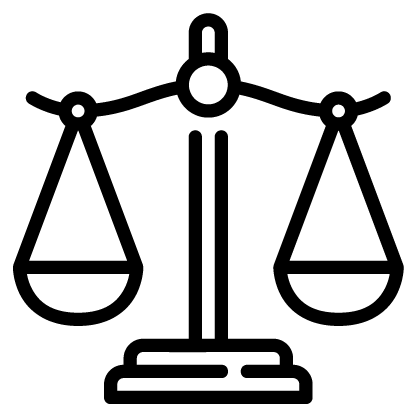Rights and responsibilities at work
It’s important to understand your rights and responsibilities at work in regard to terms and conditions, health and safety, and workplace bullying.
Employees
The main way students perform paid work is as employees. Employees work in a business and are part of the business. Check whether you’re an employee or a contractor.
What is a Tax File Number (TFN)?
When you work as an employee, your employer will ask for your Tax File Number (TFN). Your TFN is your personal reference number in the tax and superannuation systems. Once you have a TFN, you keep it for life, even if you change jobs or spend time overseas.
You don’t have to have a TFN, but without one you’ll pay more tax. You also won’t be able to apply for government benefits, lodge your tax return electronically or get an Australian Business Number (ABN) if you want to work as an independent contractor.
Applying for a TFN
Applying for a TFN is free. How you apply will depend on your circumstances:
Have you had a TFN before? If you’ve had a TFN before, you shouldn’t apply for a new one, but follow the instructions here to retrieve your lost TFN.
Fair pay
The national minimum wage for workers aged 21 and over is currently $23.23 per hour (before tax). However, the minimum amount you need to be paid might be more than this, depending on the industry in which you’re working and the job you’re doing. Find out what you should be paid with the Fair Work Ombudsman’s Pay Calculator.
If you aren’t receiving fair wages, you have the right to make a complaint to the Fair Work Ombudsman. You can also contact your union. If you think you might have been underpaid or unpaid at work, you can also contact our Legal Service for help.
Casual employees
A casual employee is one who doesn’t have a firm commitment in advance from an employer about how long they’ll be employed for, or how many days or hours they’ll work. If you’re a casual employee, you don’t have to accept all work your employer may offer you. You’re also entitled to a casual loading on top of your hourly pay rate. This loading is commonly 25%, however an Award or Enterprise Agreement (EA) may have a different amount. The loading is meant to compensate you for not receiving some of the benefits of staff who aren’t casual (e.g. sick leave or annual leave).
Casual conversion
If you’ve worked a regular pattern of hours as a casual, for at least 12 months, your employer may be required to offer you the option to convert to a permanent position. Certain eligibility requirements need to be met for this to occur. Even if your employer is not required to offer you casual conversion, you may be able to request being made permanent in some circumstances. Fair Work provides more information about this process.
Superannuation
Superannuation (or ‘super’) is a compulsory retirement saving scheme. Regardless of how much you earn, your employer is legally required to deposit superannuation contributions of 11% of your ordinary wages into a superannuation fund on your behalf. This amount will rise to 11.5% from 1 July 2024, and to 12% from 1 July 2025. Find more information about superannuation and entitlements, and about choosing a super fund.
International students and superannuation
International students on temporary visas may be able to withdraw their superannuation once they leave Australia permanently. If you’re working while studying in Australia, check whether you’re eligible to claim your superannuation after you leave the country.
If you are eligible, you should get all your original documentation copied and certified before you leave Australia.
After you’ve permanently departed Australia and your visa is no longer in effect, you may lodge an application for a Departing Australia Superannuation Payment (DASP).
Workplace health and safety
Under the Federal Work Health and Safety Act, you have a right to work in a safe environment. If you have concerns about your workplace safety you may contact SafeWork NSW – the workplace health and safety regulator in NSW.
If you’re injured at work, you’re entitled to receive support from your employer, which may include workers compensation and arrangements to allow you to return to work. Find out more about claiming workers compensation.
Your workplace responsibilities
As an employee, you must obey any lawful and reasonable instructions given by your employer and work with them to maintain a safe and healthy workplace.
SafeWork NSW provides more information about your responsibilities as an employee.
Unions
Everyone has a legal right to join a union, including international students. Unions can help make sure that your rights at work are respected, and can give you advice and representation if you have issues with your employer.
For more information on what a union is and how to find your union, visit Unions NSW.
Tax
Tax Help
The Australian Taxation Office (ATO) runs a Tax Help program each year to help employees submit their tax returns. This service is run by volunteers from July to October each year. Find out whether you’re eligible for Tax Help.
International students and tax refunds
If you worked in Australia and had income tax deducted from your wages, make sure you apply for an income tax refund before you leave Australia by lodging a tax return. You can also apply for a refund if you’ve had tax withheld on bank account interest because you didn’t supply your bank with your Tax File Number.
More information for employees
Independent contractors
You can also perform work as an independent contractor. While an employee works in a business and is part of the business, a contractor runs their own business.
Whether you’re an employee or a contractor is not a matter of choice for you or the person or business hiring you. It depends entirely on the working arrangements you have and their specific terms and conditions.
Find out more about the classification of employees and contractors.
Australian Business Number (ABN)
If you intend to start or carry on a business as an independent contractor, you’ll need to apply for an Australian Business Number (ABN). The ABN is a unique 11-digit number that identifies your business or organisation to the government and community. Applying for an ABN is free and you can apply online.
Find out more about ABN entitlement and how to apply.
Goods and Services Tax (GST)
If your business will have a Goods and Services Tax (GST) turnover (gross income from all businesses minus GST) of $75,000 or more, you’ll also need to register for GST.
If you provide a ride-sourcing service like Uber, you’ll need to register for GST regardless of how much your business will earn. If you only deliver food and earn less than $75,000 you don’t have to register for GST (but you must have an ABN). Find out more about registering for GST.
Sham contracting: are you an employee or a contractor?
Businesses sometimes request or pressure a worker who is an employee to obtain an ABN in the belief this will make the worker a contractor. They do this to try to disguise the employment arrangement so they can avoid their tax and superannuation obligations. You’re not entitled to an ABN for work that you carry out as an employee – even if you or your employer call it contracting. This is called sham contracting and is against the law.
What about if I work in the gig economy?
In the gig economy, individuals provide services to consumers for a fee via digital platforms or marketplaces.
Common gig economy services in Australia include:
- ride sharing services – for example, where consumers book an individual to drive them somewhere
- delivery services for a fee – for example, where consumers engage an individual to deliver food or other items to them
- personal services for a fee – for example, where consumers engage an individual to provide creative or professional services like graphic design and web development, or odd jobs like assembling furniture and house painting.
Independent contracting arrangements in the gig economy are very common and often genuine. However, sometimes gig economy platforms engage individuals as independent contractors when they are actually employees.
Further information
- Australian Tax Office (ATO)
- Superannuation Infoline: 13 10 20 (within Australia).
If you need further advice or assistance with a work or employment-related matter, SUPRA can help you. Contact our Legal Service for help.
Disclaimer
This information is current as at December 2023 and is intended as a guide to the law as it applies to people who live in or are affected by the law as it applies in NSW. It does not constitute legal advice.
Download this article as a Word document
Download this article as a PDF
Written by SUPRA Legal Service December 2023.
Need help?
Our casework and legal services are here for you.

Postgraduate Advocacy Service
Our caseworkers can help with any problems you face while you study at Usyd, from academic appeals to renting.


Stay in touch with us